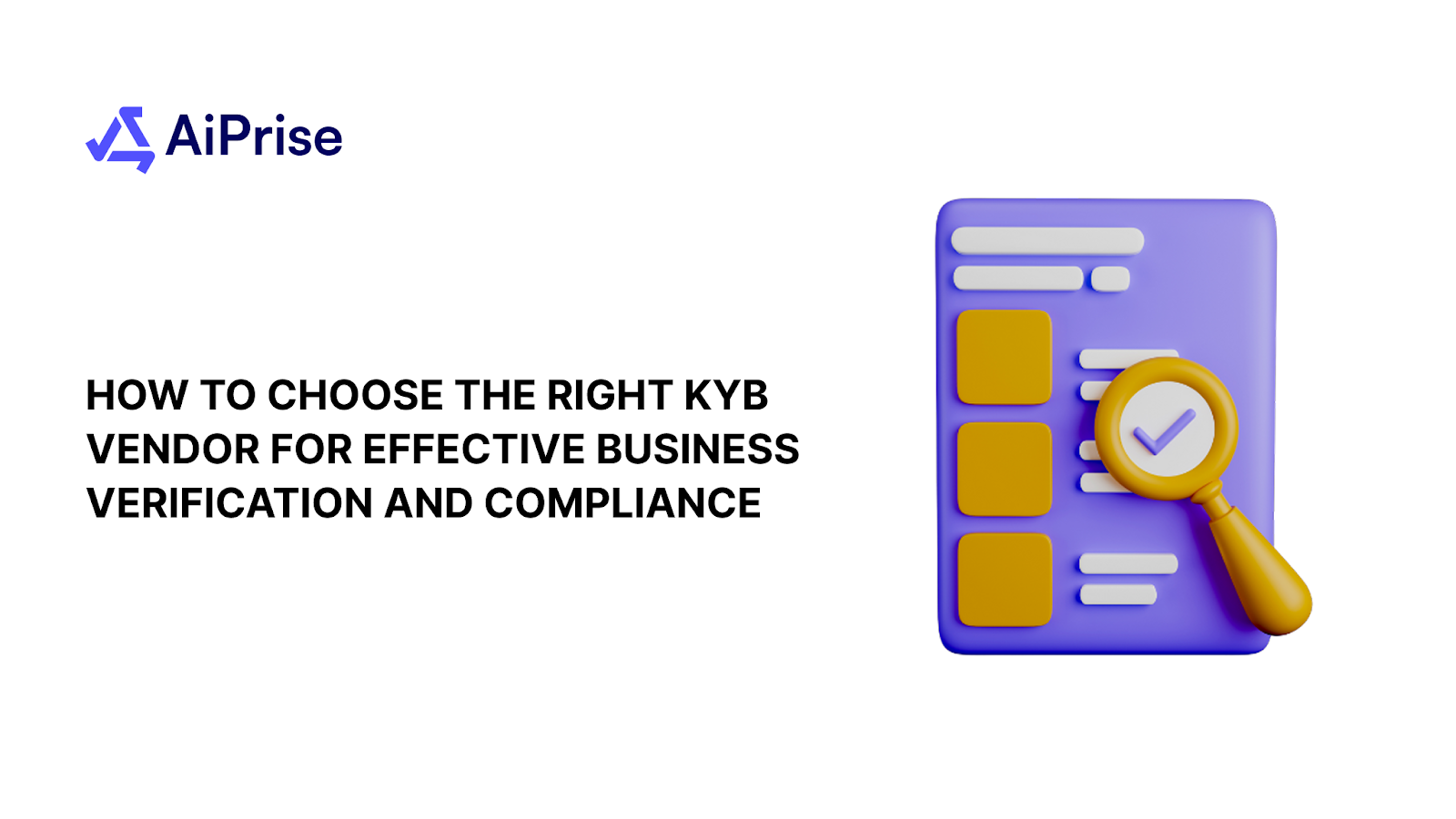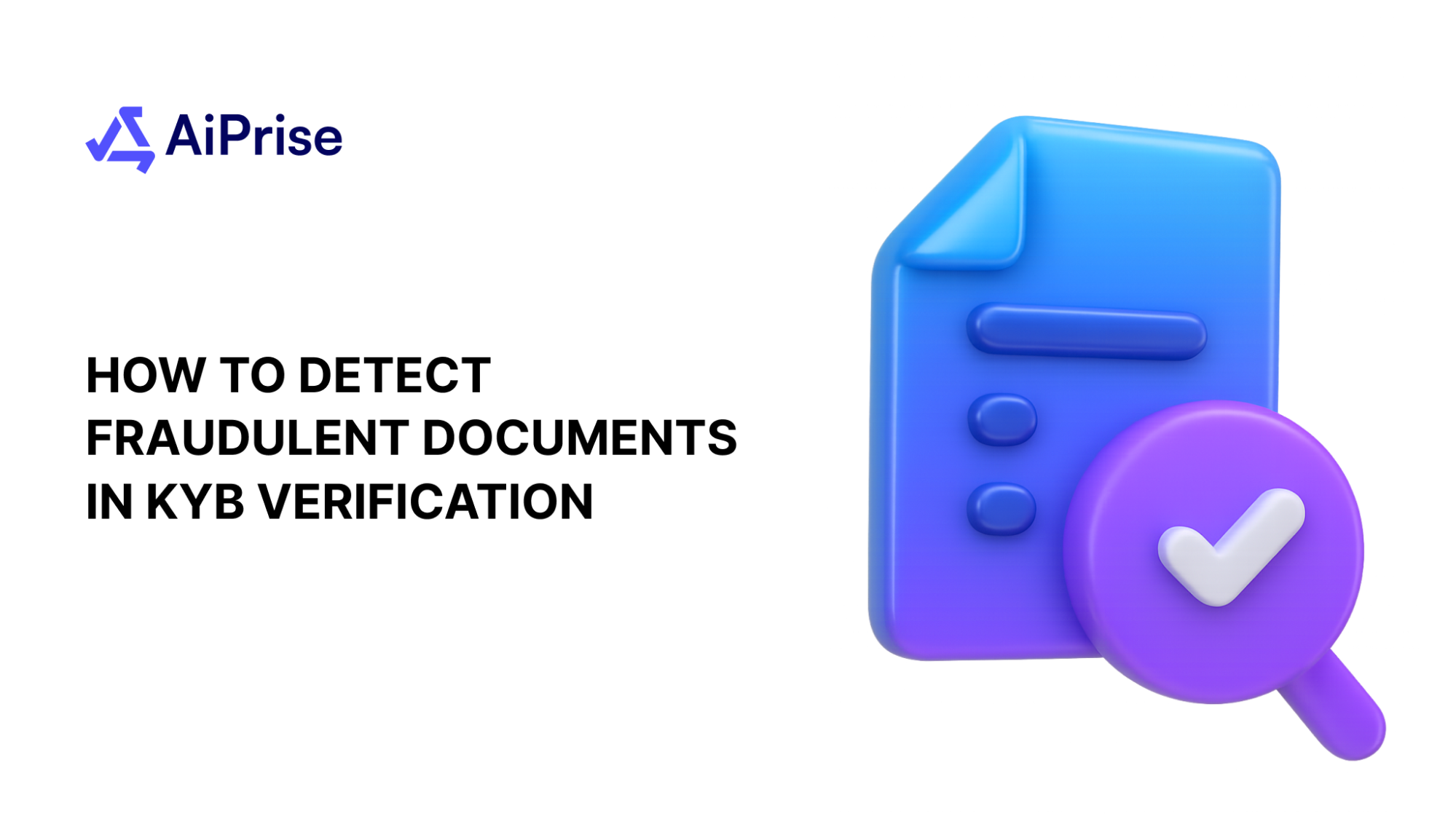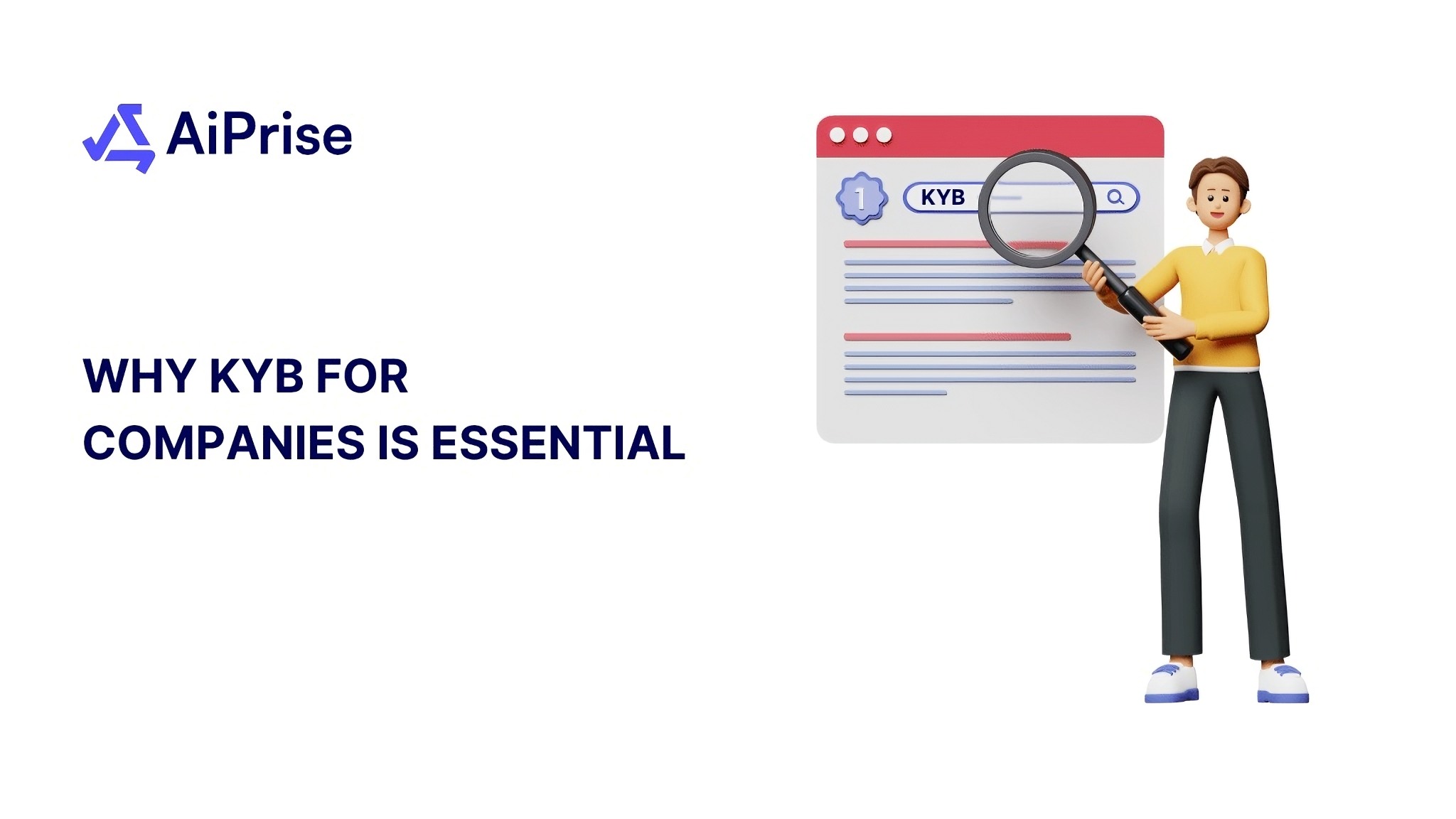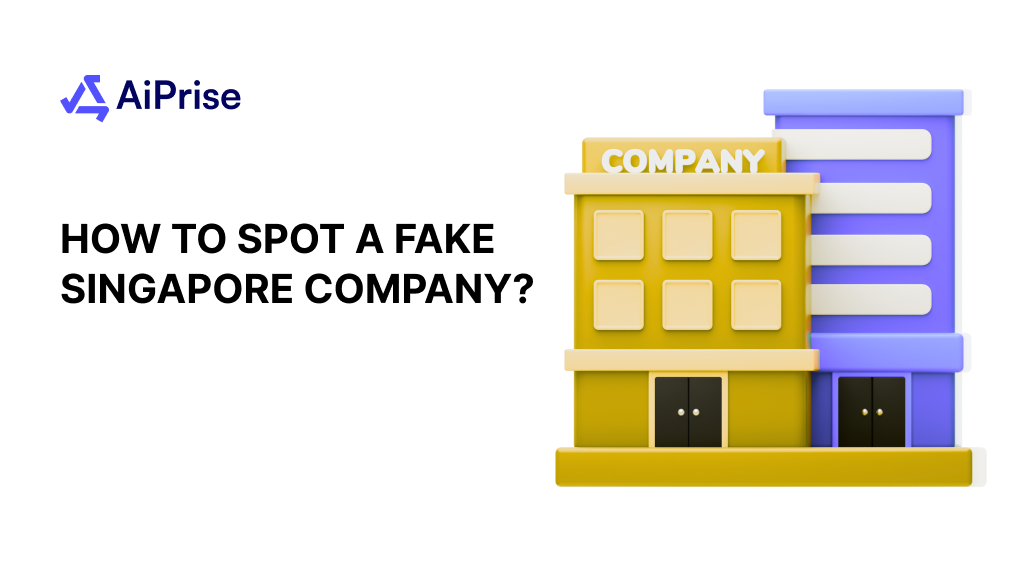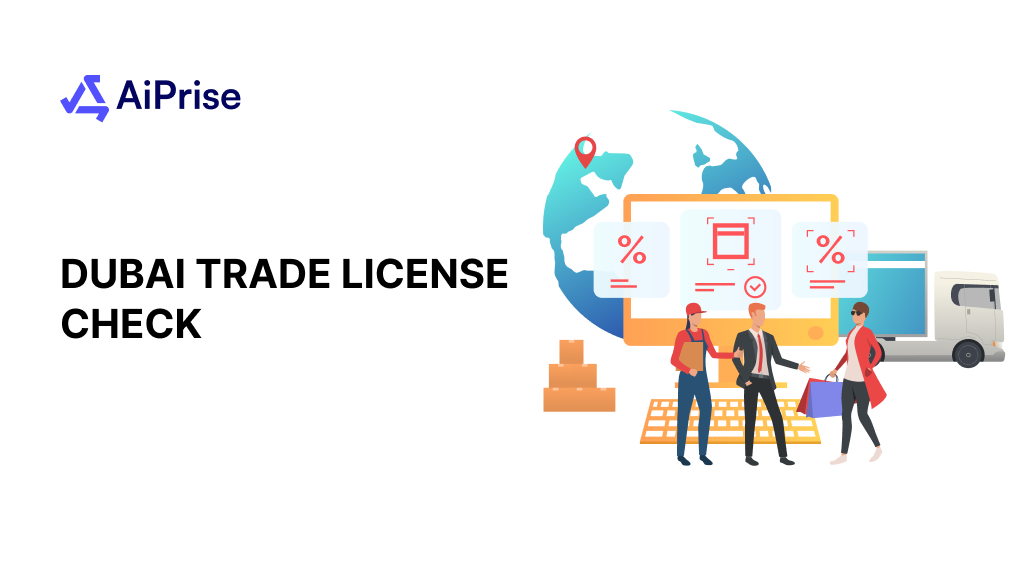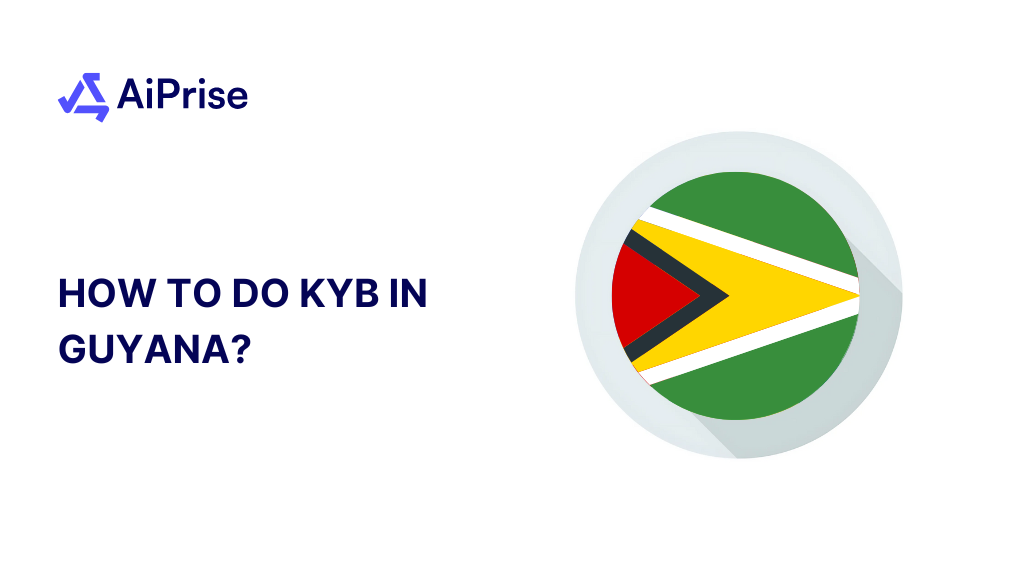AiPrise
10 mins read
May 19, 2025
How to Verify Businesses from Argentina

Key Takeaways










Verifying businesses before engaging with them is crucial for financial institutions, payment providers, cryptocurrency platforms, and other sectors where regulatory compliance and fraud prevention are top priorities.
In Argentina, the business verification process is no different. Whether you're a bank or a crypto platform, verifying Argentine businesses helps prevent fraud, money laundering, and compliance risks.
In this guide, we’ll explain the essential steps, tools, and best practices for verifying businesses in Argentina. Let’s dive in!
Understanding the Argentine Business Landscape
Before diving into verification methods, it's essential to understand the key aspects of Argentina’s business environment:
- Legal Structures
Argentine businesses operate under several legal structures, each with distinct requirements:

Each of these structures has its own registration requirements and legal obligations, so it’s essential to know which structure the business operates under to ensure proper verification.
- Economic Volatility
Argentina’s economy has experienced significant volatility in recent years. This makes it all the more important for businesses to assess potential partners' financial health carefully. Economic instability can affect a company's operations, which may increase risks when engaging with businesses in the country.
- Regulatory Bodies
Several regulatory bodies govern businesses in Argentina:
- Inspección General de Justicia (IGJ): The primary authority for registering companies in Buenos Aires, the capital.
- AFIP (Administración Federal de Ingresos Públicos): Argentina’s national tax authority.
- Central Bank of Argentina (BCRA): Regulates financial institutions and ensures their compliance with the financial laws.
These authorities play a key role in ensuring businesses meet regulatory standards, making them important resources for verifying companies.
Now that we have a solid understanding of the Argentine business environment, let's explore the key methods to verify a company's legitimacy.
Key Verification Methods for Argentine Businesses

To mitigate risks and ensure compliance, financial institutions and other entities must implement a robust business verification process. Below are the most critical methods to verify Argentine businesses:
- Official Registries
Argentina maintains several official registries, which are essential for verifying the legitimacy of a business:
- Inspección General de Justicia (IGJ): For businesses operating in Buenos Aires, this registry provides critical information about a company’s legal status, registered address, and authorized representatives.
- Provincial Registries: For businesses outside Buenos Aires, you’ll need to consult the relevant provincial registries. While each province maintains its own registry, accessing these records may be more challenging.
- AFIP (Administración Federal de Ingresos Públicos): You can verify a company’s CUIT (Clave Única de Identificación Tributaria), which is Argentina’s unique tax identification number, through the AFIP database. This ensures that the business is tax compliant and legally registered.
- Corporate Documentation Verification
Another essential step in verifying Argentine businesses is reviewing corporate documentation:
- Estatuto Social (Articles of Incorporation): These documents confirm the company’s legal structure, registered address, and activities.
- Poderes (Powers of Attorney): These documents clarify the authority of individuals representing the company, ensuring they have the power to act on behalf of the business.
- CUIT Certificate: Obtaining the CUIT certificate from AFIP confirms the company’s registration and legal existence.
- Financial Statements: Requesting audited financial statements is critical to assessing a business's financial health. These statements can help you determine whether the company is financially stable or if there are any warning signs of potential fraud or insolvency.
- Beneficial Ownership Verification
Argentina has regulations in place that require businesses to disclose their beneficial owners (UBOs), the individuals who ultimately control the business. Identifying these UBOs is vital for complying with Anti-Money Laundering (AML) and Counter-Terrorism Financing (CTF) regulations.
- Corporate Documents: You can start by requesting official documents like the Articles of Incorporation or shareholding agreements to identify key shareholders and their stakes in the business.
- UBO Cross-Checking: You should verify the identity of the UBOs using government and international databases to ensure they are not listed on sanction lists or politically exposed persons (PEP) lists.
Now that we've outlined key verification techniques, it's time to dive into more detailed due diligence checks that provide a fuller picture.
Comprehensive Due Diligence Checks
Beyond basic registration and ownership verification, due diligence checks are essential to gain deeper insight into the business and mitigate potential risks.
- Background Checks
Investigating the directors and key personnel is a crucial part of due diligence. Verify the professional history of the company’s management, check for any potential legal issues, and assess their reputation in the business community.
- Sanctions and AML Screening
Ensure that the company and its key personnel are not listed on international sanctions or watchlists. Databases like OFAC, UN sanctions, and EU sanctions lists can help in this process.
Additionally, AML checks must be performed to confirm that the business adheres to relevant anti-money laundering laws.
- Media and Internet Searches
Conducting thorough searches for negative news or any adverse reports about the company or its key personnel is essential. The media can provide valuable information about a company’s reputation and any potential red flags.
- Site Visits
While not always feasible, conducting site visits can provide valuable insights into a company’s operations. For high-risk businesses or industries, physical visits to business premises may be an important way to validate the company’s existence and operational setup.
Even with comprehensive checks in place, verifying Argentine businesses is not without its obstacles. Let’s discuss these challenges.
Challenges in Verifying Argentine Businesses
While verification processes are crucial, several challenges can complicate business verification in Argentina:
- Fragmented Registries: Argentina’s business registries are not centralized. While the IGJ handles registrations for Buenos Aires, provincial registries vary in accessibility and reliability, making verification more complicated for businesses outside the capital.
- Limited Digital Access: Not all registries and databases are digitized, meaning some verification steps may require manual requests or in-person visits.
- Regulatory Complexity: The regulatory environment in Argentina is constantly evolving. Businesses must stay updated on changing regulations related to business registration, financial reporting, and tax compliance.
- Language Barriers: Most official business documentation in Argentina is in Spanish. Therefore, employing certified translation services is essential for accurate verification.
- Data Privacy Compliance: Ensuring compliance with Argentina’s Personal Data Protection Act (PDPA) is critical during the verification process. Safeguarding sensitive business data and respecting privacy laws must be a priority.
While verifying Argentine businesses can be complex, adopting the right KYB practices ensures you remain compliant and reduce risk.
Best Practices for KYB Compliance

Verifying Argentine businesses effectively requires the implementation of best practices to ensure thoroughness and consistency.
- Establish a Robust KYB Framework: Create clear policies and procedures for verifying businesses. These should outline the specific documentation and steps required at each stage of the verification process.
- Risk-Based Due Diligence: Tailor your due diligence efforts based on the risk profile of the business. High-risk companies or industries may require more in-depth checks and ongoing monitoring.
- Ongoing Monitoring: KYB isn’t a one-time process. Continuously monitor the business relationship for any changes, such as shifts in ownership, financial instability, or regulatory status.
- Engage Local Expertise: Partner with local legal and compliance experts who understand Argentina’s regulatory environment. Local professionals can assist in accessing provincial registries, understanding complex regulations, and interpreting local documents.
- Use Technology for Verification: Technology is key to simplifying the business verification process, reducing risks, and ensuring compliance. Use AI and blockchain for document verification and risk assessment, ensuring accuracy and efficiency.
To complement these best practices, AiPrise delivers a seamless and secure approach that makes KYB compliance even easier.
Seamless and Secure KYB Solutions with AiPrise

AiPrise offers a cutting-edge solution for verifying Argentine businesses with speed, accuracy, and compliance at its core. The platform’s AI-powered risk assessment identifies potential fraud risks using advanced algorithms, enhancing security and reliability.
Additionally, AiPrise ensures comprehensive KYB compliance by adhering to AML and data protection regulations, keeping businesses aligned with evolving regulatory requirements.
Conclusion
Verifying businesses in Argentina is essential for ensuring compliance and minimizing risks. By checking official registries, confirming corporate documents, and conducting due diligence, companies can protect themselves from fraud. Despite challenges like fragmented registries and language barriers, AiPrise offers an advanced solution that simplifies the process with AI-driven tools, ensuring accuracy, efficiency, and enhanced security.
Book a demo today and see how our advanced platform can simplify your compliance efforts while ensuring robust fraud prevention.
FAQs:
- How can I verify a company's registration in Argentina?
You can verify a company's registration through official registries like the Inspección General de Justicia (IGJ) for Buenos Aires or provincial registries for businesses outside the capital. You can also verify the company’s CUIT number via the AFIP database.
- What documents should I request to verify an Argentine business?
When verifying an Argentine business, request key documents such as the Estatuto Social (Articles of Incorporation), Poderes (Powers of Attorney), CUIT certificate, and audited financial statements. AiPrise can assist with verifying these documents efficiently using advanced AI-powered solutions, reducing manual effort and risk.
- How do I confirm the beneficial owner of an Argentine business?
To identify the beneficial owner (UBO), request documents like shareholding agreements or Articles of Incorporation. Cross-check these UBOs using government and international databases. AiPrise simplifies this process by offering comprehensive UBO verification tools, ensuring compliance with Anti-Money Laundering (AML) and Counter-Terrorism Financing (CTF) regulations.
- What are the main challenges in verifying Argentine businesses?
Challenges include fragmented registries, limited digital access, and language barriers. AiPrise overcomes these issues by automating the verification process and ensuring compliance with regulations.
- How often should I conduct due diligence on an Argentine business?
Due diligence is not a one-time process. It is essential to conduct ongoing monitoring to track changes in ownership, financial health, or regulatory status throughout the business relationship. AiPrise offers continuous monitoring, alerting you to any significant changes in a business’s status or ownership.
You might want to read these...

AiPrise’s data coverage and AI agents were the deciding factors for us. They’ve made our onboarding 80% faster. It is also a very intuitive platform.










.jpg)







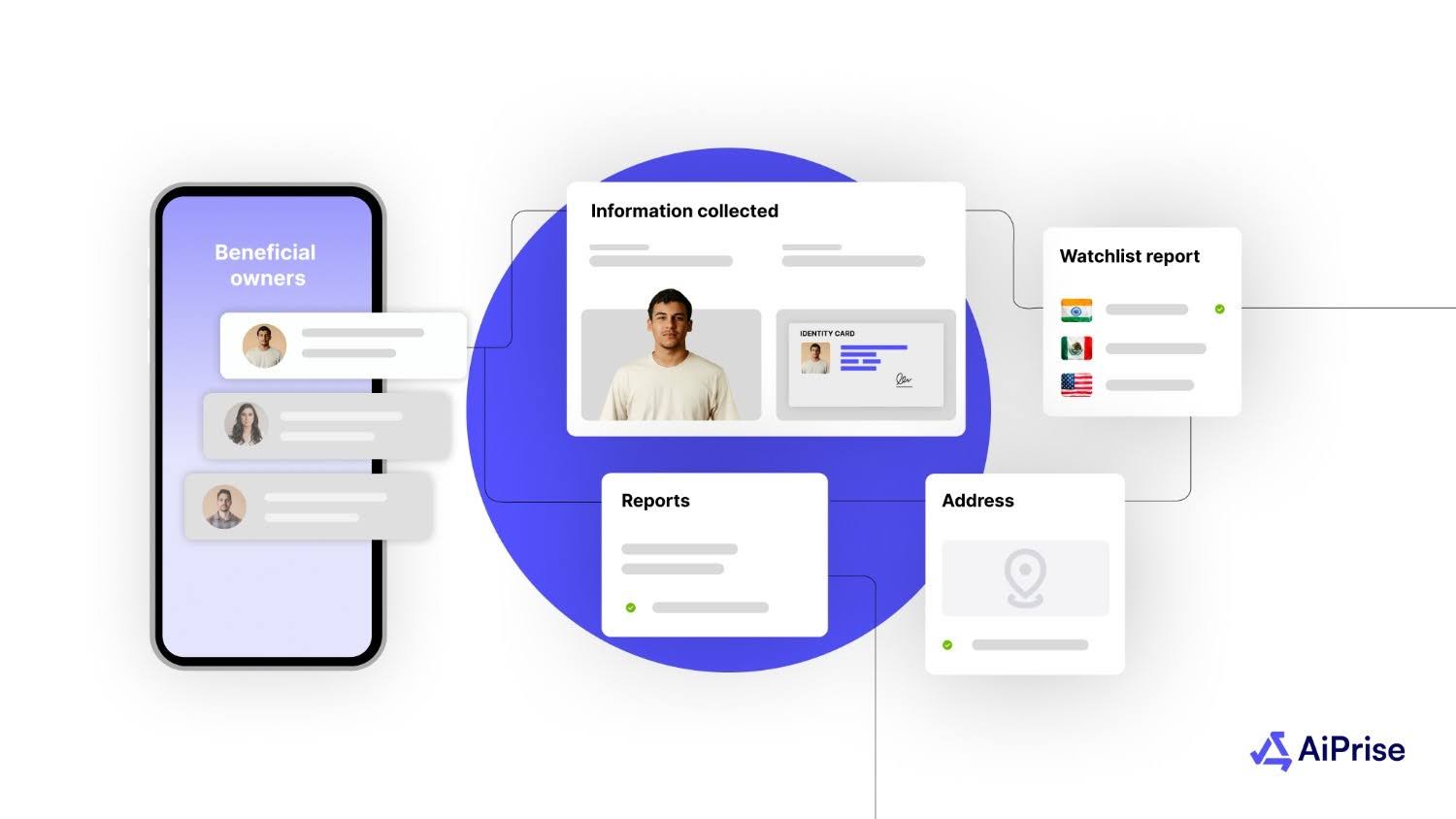
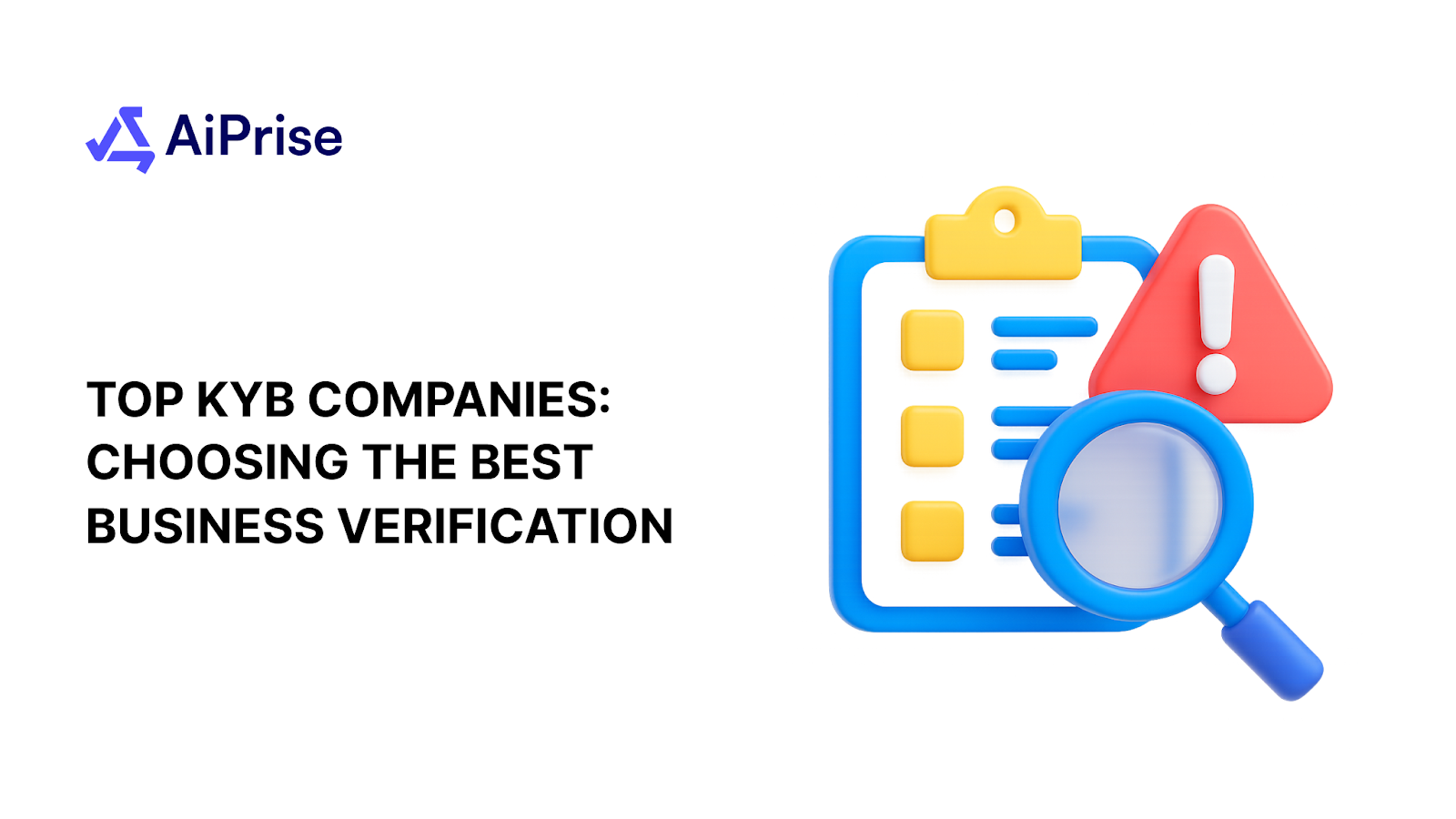
%20Can%20Improve%20Your%20Compliance%20Strategy.png)
